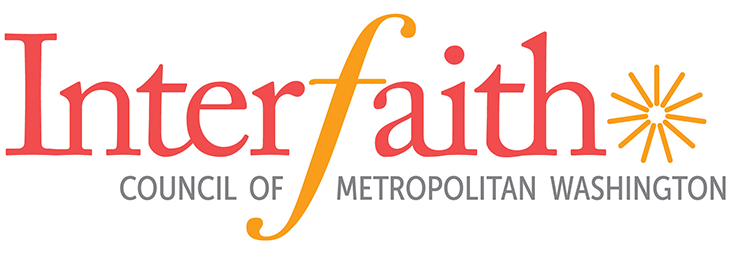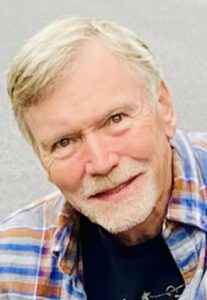By Bill Aiken, former IFC Board member
My first encounter with the IFC was on an early spring evening in the mid-1990’s, when I attended a springtime interfaith dialogue organized by the IFC on the campus of Howard University. There were hundreds of people in this hall. Everyone was seated at round tables as we enjoyed a light meal. Following the speakers, the folks at our table launched into sharing from our respective faith perspectives on the topic being addressed. It was clear some thought was put into this event, as I (a Buddhist) was seated with folks representing a range of other faith traditions.
The memorable takeaway for me was my conversation with the woman seated to my left who was Baha’i. I knew little about this tradition, and it made a big impression on me that this woman was in the middle of a fast, yet seemed unphased as the rest of us dug into our meals. We spoke about the role of fasting in the Baha’i tradition. Now some 25 years later, I can’t remember a single thing she said, but I was moved by the grace and commitment with which she practiced her faith. This encounter also led me to want to learn more about the IFC and its work, which in turn led me to a quarter-century of involvement as a board member and officer with the organization.
It may seem hard to believe now, but as recently as the 1990’s interfaith encounters were still in their early stages, and not the more commonplace occurrence we see today. This would change with the terrorist attacks of September 11, 2001, which was followed by some ignorant hateful attacks against Muslims, Sikhs and other religious minorities living here in the US. Among other things, we here in the US were confronted with the fact that we could no longer afford to be ignorant of each other or remain isolated in our respective groups. In the absence of engagement and open dialogue, misunderstanding and mistrust can only grow. As someone who represented a Buddhist community, I was keenly aware of the need to both understand the other people and communities of faith who live here in DC, and to work at making my Buddhist faith better understood. The times called for a group that could convene authentic dialogue among practitioners, as well as their leaders.
Here in the DMV, the IFC showed itself well suited to this role and provided thoughtful leadership in this area. Whether it was the moving symbolism of their annual interfaith concert or the popular Unity Walk, it provided well-constructed forums for encounter. One of the things that impressed me was that it never sought to oversimplify or deny differences among faiths. Rather, it sought through its activities to affirm the dignity of each of our respective traditions while lifting-up the essential civic value of religious pluralism, which seeks to value and protect the religious tights and sense of security for people of all faiths or none.
As a Buddhist, I thought of myself as open minded and not as subject to prejudicial dogmatic views of other religions. While that may or may not be true in theory, I learned through my work with the IFC that as a human being I actually did have a fair amount of prejudice, and understood little of other people’s faith practices. Over the years, my education would come not just by reading about others’ teachings and traditions, or through listening to explanations, but by working together with my IFC colleagues and witnessing how they lived their respective beliefs. I also had the chance to visit with a number of religious communities, so I could “walk a mile in their shoes”. In the process, I found much to admire, and I found myself reflecting more deeply on how I lived my own faith. In this way my work with the IFC led me toward becoming a better Buddhist, more authentic, open-hearted and appreciative toward those who were otherwise quite different from me. It’s been a genuinely enriching experience.
Having the opportunity for learning encounters with others who are different from us seems essential in this global society we live in. The simple fact is that it takes skillful effort to help make this happen in a community, especially during times of friction, fear or crisis. I feel grateful that here in the DC area there is the IFC, and I’m grateful to have been a part of their story. It’s a group that is (IMO) worthy of all of our support.

